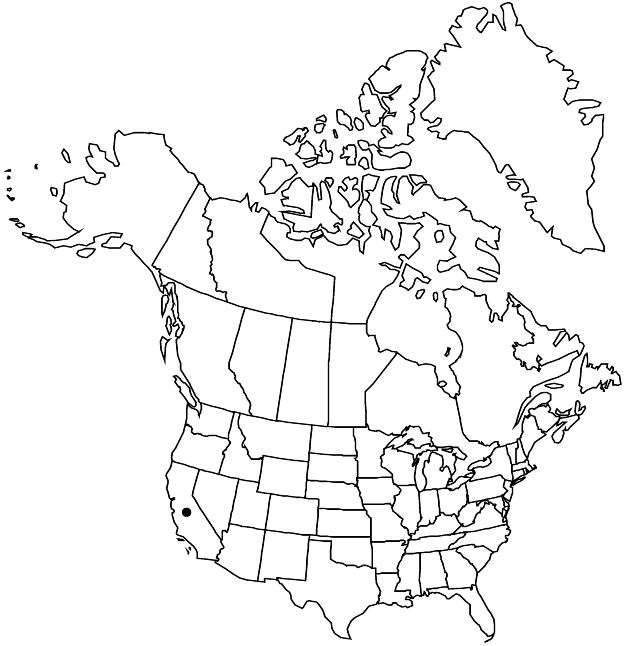Mentzelia hirsutissima
Proc. Amer. Acad. Arts 12: 252. 1877.
Plants (5–)15–30(–40) cm. Basal leaves: petioles present or absent; blade oblanceolate, to 11 cm; margins shallowly lobed, lobes rounded. Cauline leaves: petioles absent; blade ovate to lanceolate, to 11 cm, base often cordate-clasping, margins deeply to shallowly lobed, lobes acute. Bracts green, inconspicuous, not concealing pedicel, ovary, or capsule. Flowers: petals yellow to orange, obovate, 12–31 mm, apex mucronate; stamens 4–12 mm, less than 1/2 petal length, all fertile, none petaloid (flowers appearing to have 5 petals); filaments ±monomorphic, linear, most or all distally 2-lobed, lobes to 0.3 mm; anther stalk longer than filament lobes; style 6–15 mm. Capsules cylindric to cup-shaped, 13–25 × 5–8 mm, erect. Seeds widest at middle, not grooved; seed coat anticlinal cell walls deeply wavy.
Phenology: Flowering Apr–May.
Habitat: Washes, fans, slopes, desert scrub.
Elevation: 0–800 m.
Distribution

Calif., Mexico (Baja California, Baja California Sur, Sonora).
Discussion
Mentzelia hirsutissima is superficially similar to M. tricuspis and M. tridentata, but these taxa can be distinguished geographically. Mentzelia hirsutissima is distributed primarily on the Baja California Peninsula and occurs in California only in San Diego and far western Imperial counties, whereas M. tricuspis and M. tridentata occur north and east of this distribution. California populations previously have been called M. hirsutissima var. stenophylla. However, G. S. Daniels (1970) found that characters used to distinguish varieties of M. hirsutissima were not stable within populations.
Selected References
None.